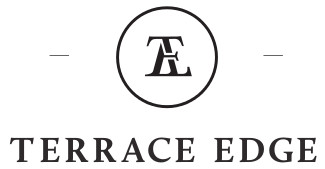To help our growing membership keep track of each other, we run a Q&A with a certified organic OWNZ member in each issue of Organic Matters. Here is our interview with Pete Chapman of Terrace Edge from our Winter issue.
Terrace Edge Wines in the Waipara Valley is a family-owned and operated business. The North Canterbury property was originally a sheep farm. The Chapman family purchased the land in 1999 and began their land conversion by planting 2000 olive trees.

Pete, the youngest of three sons in the family, went on to study viticulture at Lincoln University, and now manages the day to day operations in the vineyard. The whole family is involved in the business.
Their hard work is paying off; this year Terrace Edge won Vineyard of the Year in the NZ Organic Wine Awards, also taking home a champion award for the best Pinot Gris and gold medals for their Riesling, Syrah and Rosé.
Where are your vineyard and winery located?
We are on a terrace overlooking the Waipara River.
What’s your role in the business?
Viticulturist plus many other hats – the joy of small business.
What varieties do you grow, and how much of each?
Pinot Noir 4.6 ha, Syrah 2.25 ha, Pinot Gris 2.4 ha, Albariño 0.7ha, Riesling 1.6ha, Sauvignon Blanc 1.4ha, St Laurent 0.7 ha, Viognier 0.1 ha.
How long has your operation beencertified organic?
Five years.
What made you decide to go organic?
We wanted to care for the land and make a healthy product. It was the realisation that in nature, everything can work together if given the chance. What we are trying to do is capture this, by growing the vines organically. It’s all about being proactive rather than reactive. Creating an environment that works and nurturing it the best we can.
What changes have you noticed in your vineyards since going organic?
Developing a healthy vineyard microbiome by using only naturally derived products, means the vines are healthier and we can produce lower yields of high quality fruit. If you have excellent nutrient-rich grapes, you don’thave to manipulate the final product withadditives.
What have been the biggest learning curves for your company in adapting to organic production?
Definitely undervine weed management. The vines took a while to get used to it and we took a while to get half good at it.
What’s an interesting experiment or innovation you’ve tried in producing organically? We grow Syrah vines organically on a 45 degree north-facing slope. Every bit of management is by hand.
What changes are you noticing in your wines since going organic?
Probably more savoury complexity.
Do you have any particular aspirations for the future? We have a great little team of people who take pride in what they do. I hope we just keep learning from every season, ultimately getting the best out of our site.








Comentarios